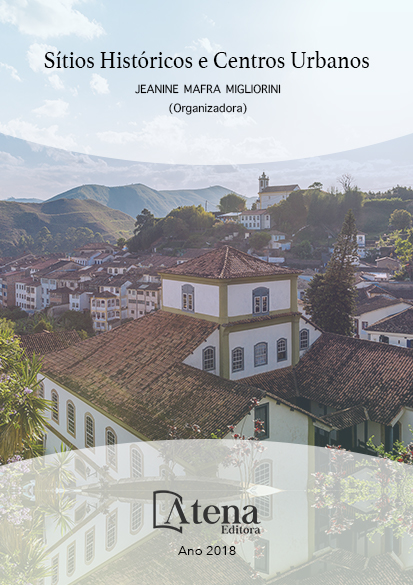
A ROTA PATRIMONIAL COMO INSTRUMENTO DE PRESERVAÇÃO: proposta em Conceição da Barra/ES
A evolução do conceito de patrimônio
cultural culminou na evolução dos instrumentos
que preservam e se relacionam com esse
patrimônio. Uma visão contemporânea de
instrumentos de preservação do patrimônio
que será considerada neste artigo é a Rota
Patrimonial, uma compilação de recursos
patrimoniais semelhantes ou que tenham algum
elemento em comum de forma a possuírem
uma unidade de significado. O conceito de “rota
patrimonial” reflete uma visão contemporânea
da preservação de patrimônios culturais que
difere das formas tradicionais de inventários,
pois busca entender a relação entre homem
e território. A cidade de Conceição de Barra,
situada no litoral norte do Espírito Santo
possui além de um rico acervo arquitetônico e
urbanístico, recursos naturais e manifestações
culturais populares de suma importância para a
formação da identidade barrense. Não obstante
a riqueza cultural, pouco dessa riqueza é
reconhecida, seja pela própria população local
e espírito-santense, seja pelas instituições
públicas. Nesse sentido, este trabalho possui
como objetivo geral identificar, documentar
e reunir a identidade cultural local através do
estudo e proposição de uma “rota patrimonial”
como instrumento de preservação e valorização
do território a partir da relação dos bens
materiais (naturais e construídos) e imateriais
(que incluem ofícios, tradições, aspectos do
cotidiano e memória coletiva), e dos espaços
por estes apropriados, vividos ou percorridos.
A ROTA PATRIMONIAL COMO INSTRUMENTO DE PRESERVAÇÃO: proposta em Conceição da Barra/ES
-
DOI: Atena
-
Palavras-chave: Patrimônio Cultural; Rota Patrimonial; Identidade Cultural; Conceição da Barra.
-
Keywords: Cultural Heritage; Patrimonial Route; Cultural identity; Conceição da Barra.
-
Abstract:
The evolution of the concept of
cultural heritage culminated in the evolution
of the instruments that preserve and relate to
this patrimony. A contemporary view of heritage
preservation tools to be considered in this
article is the Patrimonial Route, a compilation
of similar patrimonial resources or that have
some element in common in order to have a
unit of meaning. The concept of “patrimonial
route” reflects a contemporary view of the
preservation of cultural heritage that differs from
traditional forms of inventories, since it seeks to
understand the relationship between man and
territory. The city of Conceição de Barra, located
on the north coast of Espírito Santo has a rich
architectural and urbanistic collection, natural
resources and popular cultural manifestations of
great importance for the formation of Barrense
identity. Notwithstanding the cultural richness,
little of this wealth is recognized, either by the
local population and Espírito Santo, or by public institutions. In this sense, this work
aims to identify, document and gather the local cultural identity through the study and
proposition of a “patrimonial route” as an instrument of preservation and valorization of
the territory from the relation of material goods (natural and constructed) and (including
crafts, traditions, aspects of everyday life and collective memory), and of the spaces
they have appropriated, experienced or traveled.
-
Número de páginas: 15
- Maísa Fávero Costa
- Maisa Favero Costa


